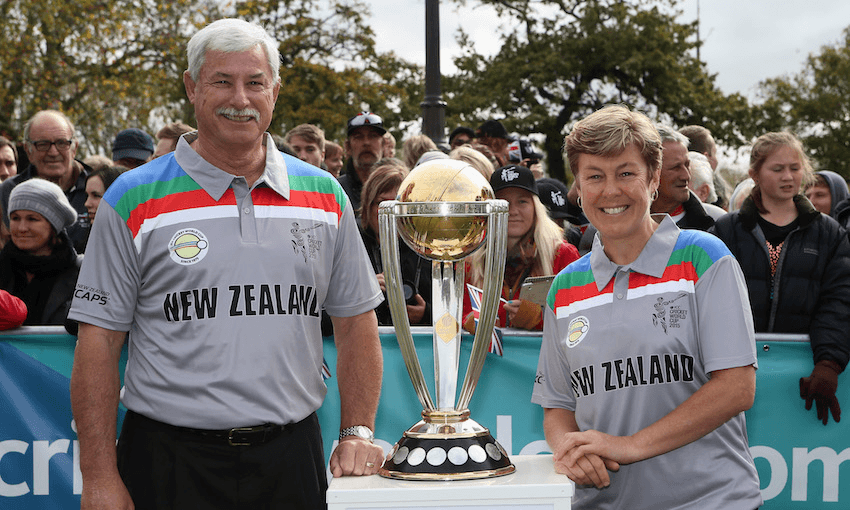A petition has been set up calling for Debbie Hockley to be removed from the Sky cricket commentary team – and the creator and every single commenter so far is male. RNZ’s Zoe George reports.
The president of New Zealand Cricket, Debbie Hockley, has been threatened with physical violence and referred to in sexist terms in a petition set up to get her dumped from the Sky cricket commentary team. So far nearly 430 people have signed the petition and dozens have left their comments on it.
Some comments do mention her ability as a commentator, while others simply tell her to “shut the f**k up” or call her a “stupid bimbo” or a “c**t”. One commenter says he “would smash” her. The Change.org petition was established four weeks ago by Hamiltonian Chris Higgens, who says the former international cricketer must be removed from the commentary box because “she says some really retarded things” and her commentary is an “absolute joke”.
New Zealand Cricket has called the petition and its comments “misinformed, misguided and, in terms of some of the more intolerant comments, misogynist.”
Former sports reporter Toni Bruce, now an associate professor at the University of Auckland, says the attitudes shown in the petition are endemic in sport. “There is something very deep in sport about it being a space for men, where men can be with other men and be manly – however that’s determined.”
“Whenever women enter into it … in a way that looks like they have some power … is when the pushback is the most great.”
Like Hockley, NZ Herald sports journalist Dana Johannsen has been on the receiving end. A Facebook “hate page” was established after she wrote a column about the Sochi Winter Olympics, which she says had a flow-on effect on her personal life, her family and her work. In the end she gave away writing opinion columns. “It was a tidal wave of abuse that was well organised and deliberate,” she says. “[It was] targeted to humiliate and intimidate. It makes you think twice about putting your opinions out there.
“In the end … the cumulative effective of it made me think it was not worth it.”
Sports psychologist Karen Nimmo says sometimes comments like those on the Hockley petition are little more than attention seeking. But she says such abuse can still have long lasting implications for its subject. “It has an impact on confidence, self-worth … and your career,” she says. The Hockley petition is addressed to Sky TV New Zealand, which broadcasts the cricket and contracts the commentators.
Debbie Hockley admits she made a mistake at the start of the season when she questioned whether a spectator was “Serena Williams”. But the petition also misattributes quotes to Hockley made by another female commentator.
Both Sky Sport and New Zealand Cricket have pledged their continued support to women in cricket and in the commentary box. Richard Boock from New Zealand Cricket says the petition reinforces the need for change. “The comments made on the petition justify NZC’s push for more gender diversity in the game,” he says. New Zealand Cricket has adopted an inclusivity policy which “aims to confront inappropriate barriers, practices and attitudes and to ensure everyone is treated with respect regardless of gender, ethnicity, sexual orientation or religion.”
Regarding the comments and threats made to Debbie Hockley, Boock says if they were made on the field by a player or at an international ground there would be serious consequences, including players facing code of conduct hearings and spectators being ejected by security and facing possible police action. Toni Bruce says that despite the threats and name calling says that women in sports commentary and journalism shouldn’t back down. “Every time I get attacked now, I actually take that as a really good sign,” she says. “If I wasn’t doing anything that was rocking the boat I wouldn’t actually be getting any response at all.
“The worse the comments are and the more I get attacked, that’s a fantastic sign I’m actually making a difference.”
The Bulletin is The Spinoff’s acclaimed, free daily curated digest of all the most important stories from around New Zealand delivered directly to your inbox each morning.

